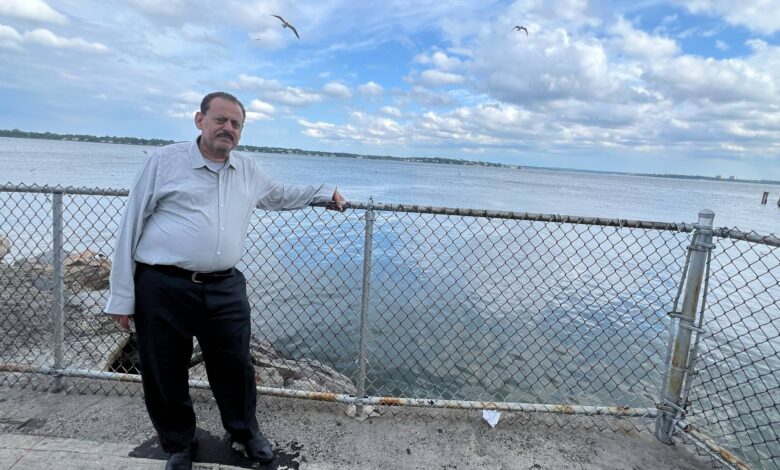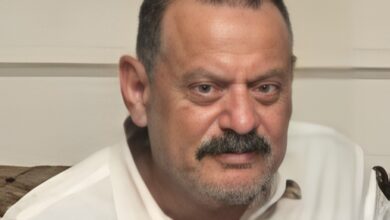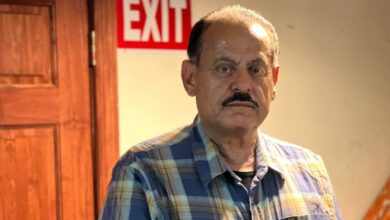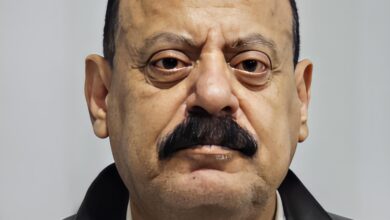Missing Justice

Yemeni mp
Ahmed Saif Hashed
“Haifa” — a breath of the sea that revives the beloved. Her gaze lifts from the shoulders a fierce, grinding fatigue. With the palm of her hand she wipes away the rubble of ancient sorrow, extinguishing the flames and smoldering embers of longing. Like rain on parched earth, she makes it green again and dresses it in new radiance. She is God’s gift to His virgin land — a spark of the Divine spirit and its secret. “Haifa” is the Sufi’s refrain, possessed by the One; a ceaseless cascade of forgiving grace. She dwells in God’s realm, in the universe’s hymns to His name and the worlds’ prayers for His majesty. Haifa is a girl without equal.
I am a poor, destitute man crushed by hardship — God made me in the bottom of a well. I try to salvage what remains of me, but fate refuses. No one hears my voice, strangled deep within the abyss and weighed down by sorrow and loneliness. The abandoned well dried up until it became stone; I bled in it to the last drop. I tried to climb out and failed; everyone abandoned me. Deprived of resources, I petrified there and became part of it.
How can I compare? The difference is like that between a speck of sand smaller than an ant’s eye and a galaxy stretching to the far reaches of the universe. The gap is vaster — like the difference between a creature and its First Creator. She is a daughter of light from a noble house; I am a very simple man, crushed between her millstones and an imperfect love. I was born afflicted from the first day. I still live my emptiness, hear its misery creak within the marrow of my bones, and endure an emptiness in my heart the size of this universe — and larger.
Years before I knew Haifa, when I was still immature, I searched for shelter the size of a grave and found disappointment larger than a widening cemetery. I lived on the roof of Masbaghah. Every day the sun fell upon my back and roasted me at fierce noon. The heat scorched me — who will pity me from that blistering blaze and the sun’s wrath? The grains of heat flayed my skin and disfigured my exhausted body, leaving no place untouched by peeling, mutilation, or ruin.
I used to pace Aden’s streets and haunt its alleys, hoping to find a house to shelter me or someone who would take me in for a year or a month. My emptiness and longing crushed my bones. I searched for a tender family who would care for my plight. Whenever I saw someone in Aden who owned a house of brick, corrugated iron, or even a little straw hut, they seemed to me like someone who had completed both faith and fortune and had won the Lord’s paradise.
O Lord, I have neither bedding nor shelter. Once, when the world smiled on me for a moment, I found a house whose construction was unfinished — like a rat’s nest — while the home of the woman I loved rose exalted in rank above it, its shadow towering nearby. If the description seems coarse, I would lower myself a degree just to win the Lord’s forgiveness. That, to me, was the difference between the two.
Oh, what a gulf that splits my back into shards, what a thousandfold fracture that crumbles me like a lump of chalky sand. What remains of me? My plea knots my tongue into silence — a mute block of stone — merely at the thought of asking for her hand, even in a dream soaked in deep sleep. How can my fingers, crippled by God’s will, carve a tunnel through a mountain or bore through rock? I am still searching for lost justice in a land of cruelty and oppression.
My God — I am the tanner’s son, tanned by poverty and cursed luck. How can I gather my scattered self and summon courage that now fails me? How can I think of asking for her hand when my arm is severed by need at the shoulder? I resemble a dissident who contemplates revolt against a sacred thing rooted deep in consciousness and ingrained in the heart — amid a mosque drowning in obsession and the harshest taboos.
What madness is this? How can a man crushed by poverty, consumed by utter want, dare to ask for the hand of a girl who stands above him by a span of light a thousand years old? What will I tell her and Aden’s people if they ask, “Do you own a villa, a palace worthy of a queen?” — a question that would strike a mountain dumb and hurl the world’s disappointments into my face like hellfire. Oh, the lament for the rat’s nest house.
Am I a sinner, O Lord, simply for thinking of love or marriage — a love driven from me farther than the sun’s eye? How can I travel? I am stuck in the fog of regret, afflicted by my existence, racked almost to delirium. It seems God has written on the preserved tablet my doomed fate of loss, crucified with the misery of destitution and an absence that borders on nothingness.
I have resolved not to vanish before poverty — not to make peace with crushing injustice as if it were an immovable fate. I will resist my nullity with a devotion that shapes a man who will not surrender to tyranny. I will assert my presence, in length and breadth, against the desolate absence and the void of loss — a fuller presence that stands with the poor, resisting the tyranny of hunger and brazen injustice. An honor that remains whether I live or am buried beneath the earth in the shrine of eternity for a hundred years or a thousand.
* * *






